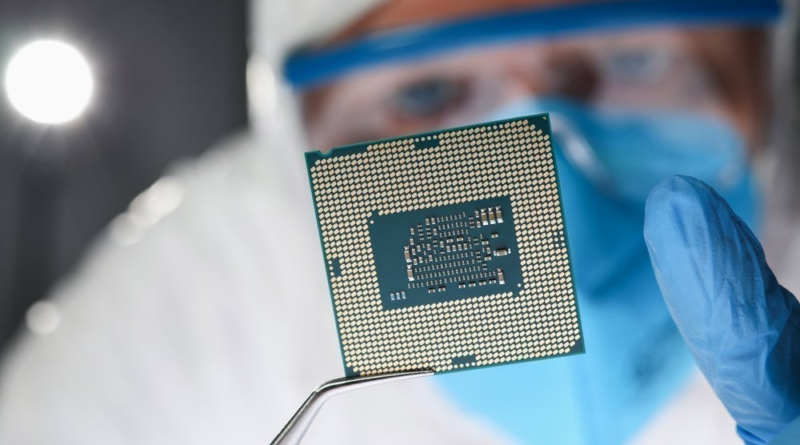Nvidia Propels Semiconductor Industry To $5.5 Trillion Valuation; Beginning Of Bigger Boom, Says Analyst – Benzinga
The U.S. semiconductor industry has hit a monumental milestone, amassing a combined market capitalization of $5.5 trillion as of Thursday. This achievement hypothetically positions the U.S. chipmaker industry as the world’s third-largest economy, surpassing Japan and trailing only behind the United States and China.
The industry’s spectacular growth stems from a surge in demand for artificial intelligence (AI) chips, propelling the overall market value to more than triple over the last year alone.
Leading this exponential growth, Nvidia Corp. NVDA commands more than half of the industry’s overall market value, amounting to approximately $3 trillion.
Nvidia’s share price has soared by 210% over the last year and 143% year-to-date, marking the strongest performance within the broader tech-heavy Nasdaq 100 Index. Reflecting its growth in the data center business, Nvidia’s revenue has risen at a compounded annual growth rate of 54% over the last three years.
Besides Nvidia, 10 other U.S. semiconductor companies boast market caps exceeding $100 billion, cementing the industry’s dominance. Six chipmakers also appear in the S&P 100, topping any other industry. Broadcom Inc. AVGO, with a market cap of $650 billion, ranks as the second-largest chipmaker and the eighth-largest U.S. company overall.
Read also: Jensen Huang’s Nvidia To Remain ‘Top Dog’ In AI Chip Battle, AMD To Get A Slice, Predicts Tech Investor Paul Meeks
U.S. chipmaker exchanged traded funds (ETFs) are currently trading at record highs.
The VanEck Semiconductor ETF SMH and the iShares Semiconductor ETF SOXX have rallied 75% and 51%, respectively, over the past year. Nvidia’s larger weight in the SMH largely explains its higher performance compared to the SOXX ETF.
According to Bank of America equity analyst Vivek Arya, semiconductor stocks could face a pullback due to rising rates, the upcoming U.S. elections, geopolitical tensions, unfavorable AI headlines, and seasonal softness. Despite these potential headwinds, the investment bank remains bullish on chip stocks, particularly focusing on three favored themes:
Understanding The Chip Cycle
Semiconductor cycles typically span around 3.5 years, with 10 up quarters followed by 4-5 down quarters, according to Arya.
The current upcycle began in late 2023, placing us in the third quarter, which suggests continued strength likely until mid-2026.
However, semiconductor stocks tend to change direction 6-9 months ahead of a cycle inflection, indicating that semis could potentially peak sometime around the second half of 2025, or roughly a year from now, the analyst explained.
“Many top tech and cloud companies are either lagging or still experimenting with training their large language models, where parameter sizes could increase by 10-100 times to reach multiple trillions of parameters,” Arya said.
Converting global data centers to accelerated computing could require $250-$500 billion annually, and we are only 20-30% into this transformation, which could last another 3-5 years.
Read now: Cathie Wood Remains Bullish On AI Investments Despite Nvidia Stock Adjustments
Photo: Shutterstock
© 2024 Benzinga.com. Benzinga does not provide investment advice. All rights reserved.
Trade confidently with insights and alerts from analyst ratings, free reports and breaking news that affects the stocks you care about.
